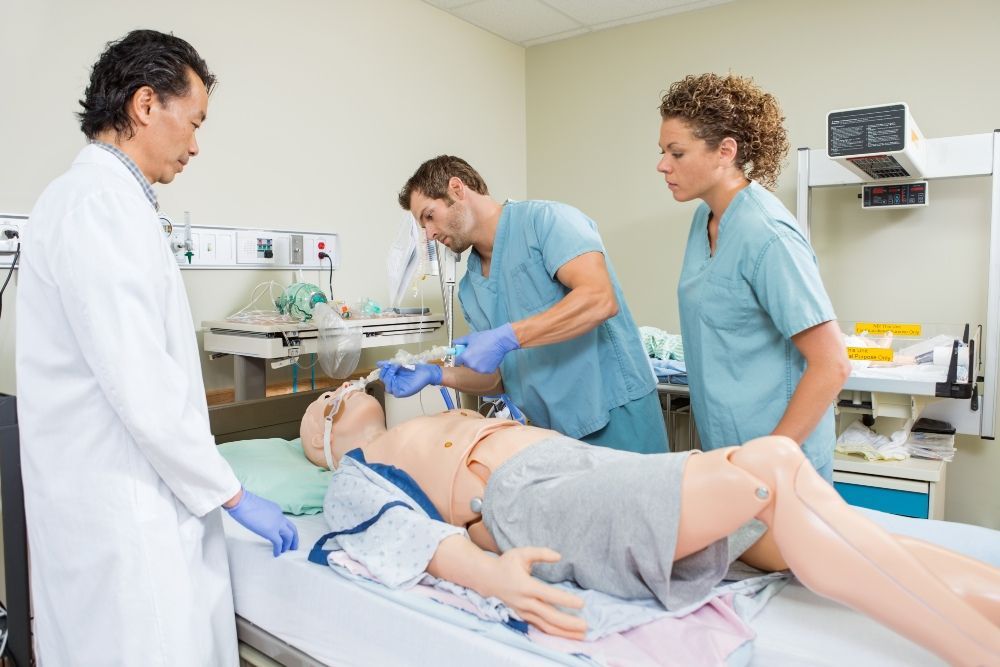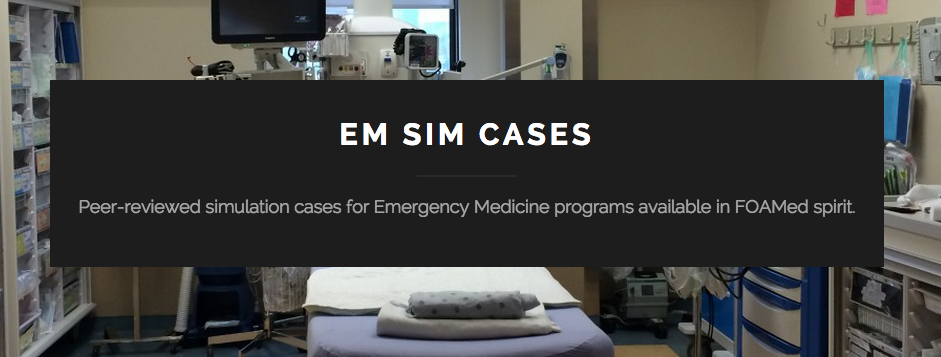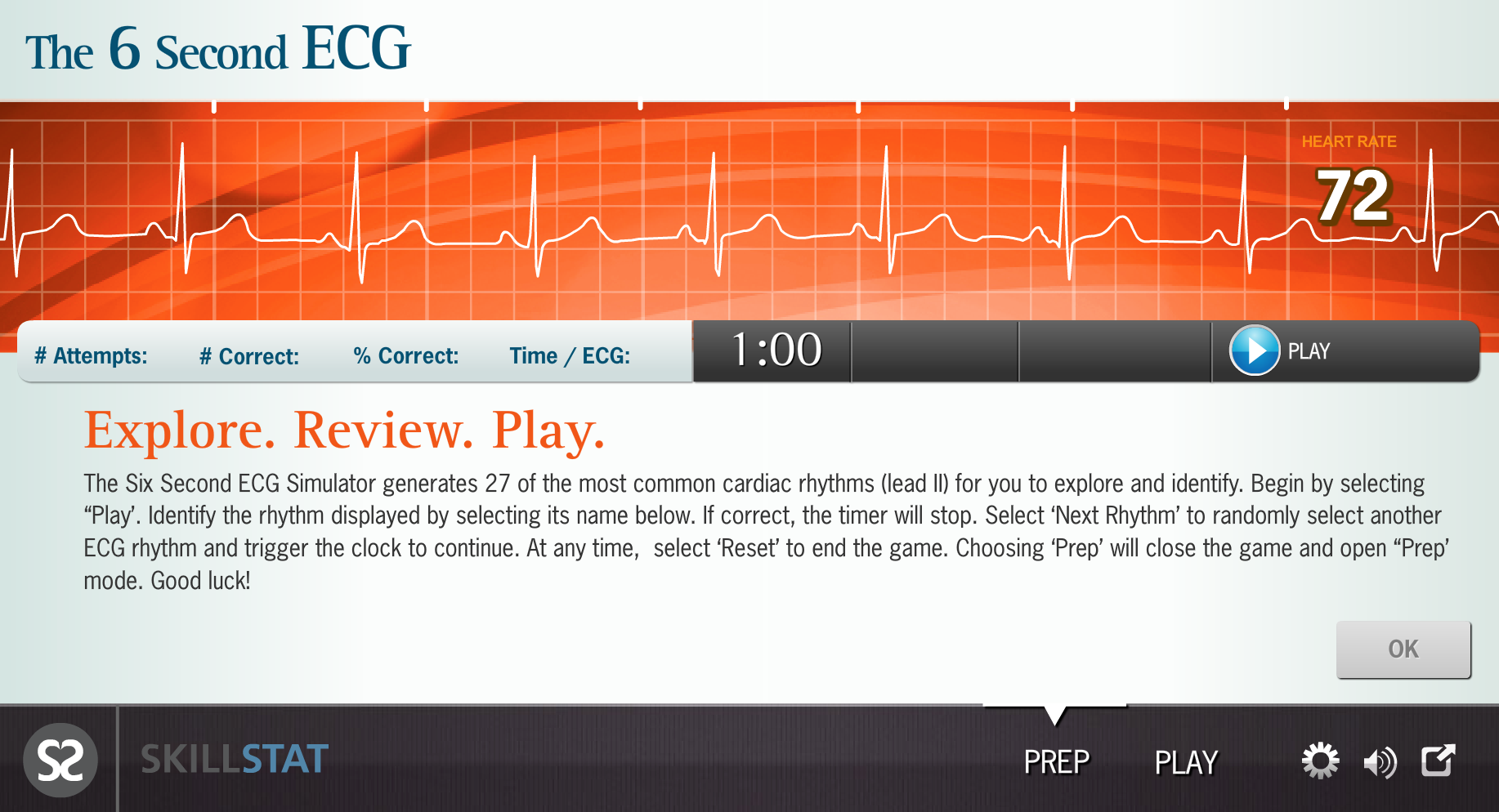Rapid Cycle Deliberate Practice (RCDP) is a clinical simulation-based technique that differs from the majority of traditional clinical simulation practices. RCDP involves clinical simulation participants repeatedly performing a clinical simulation scenario with multiple small debriefs that are caused by a disruption by the faculty. The disruptive and micro-debrief sessions are more frequent and can be focused on key performance indicators of particular interest. Although not new, RCDP continues to be utilized and honed as a style of clinical simulation by many. This article by Erin Carn-Bennett, MSN, RN, will discuss RCDP as a modality to consider in clinical simulation programs that do not use RCDP and how to get started.
What is Rapid Cycle Deliberate Practice?
RCDP was developed by a team of researchers at Johns Hopkins University in 2012. RCDP is a cognitive framework that can be used in clinical simulation as a tool for clinical simulation faculty to progress a specific skill or teamwork performance to a mastery level through repetition. RCDP includes components of deliberate practice, mastery, and crisis resource management. RCDP is an effective modality of clinical simulation to improve healthcare team performances in low-volume but high-risk patient events. The ability to rewind and repeat until mastery is reached is certainly desired by many clinical simulation participants. RCDP is similar to the analogy of a golf coach who stands alongside their learner and gives corrections until mastery is reached.
The incorporation of feedback to clinical simulation participants allows for continual improvement with each iteration of RCDP. Timely feedback in RCDP, as well as the repetitive process, is quite different from traditional clinical simulation methods and can find a place in most clinical simulation programs, dependent on the educational outcomes sought. RCDP is a healthcare simulation methodology that focuses on the rapid acquisition of required clinical skills. RCDP’s use in clinical simulation-based education for emergency scenarios has demonstrated improved team performance in several different studies and is therefore worth consideration.
Rapid Cycle Deliberate Practice and the Adult Learner
RCDP is an integration of several key educational principles. To learn to mastery is an educational concept where the emphasis is on comprehensive learning of the individual. The concept involves an iterative process until mastery is achieved. Individuals may take as long as required to fulfill mastery of the objectives. RCDP is centered around this concept of deliberate practice.
During the RCDP style of clinical simulation as an instructor, there can be merit in the pre-brief to give a description of this style of clinical simulation being similar to the process of cooking pancakes. The first RCDP cycle usually comes out a bit strange, but by the end, they are nearly perfect. In RCDP, learners will have the experience of catapulting their skills from potentially a low or not great skill level to mastery. Though a disruptive style to learn in, there are also many rewards to be gained.
How Does RCDP use Deliberate Practice?
Deliberate practice is a process of focusing on a specific area of weakness in order to improve performance. In this intentional approach, the clinical simulation participants can address areas where growth is possible and improvement of the overall skill is required or desired. RCDP is a deliberate practice used in a repetitive nature. RCDP clinical simulation program curriculums should be used to maximize the time clinical simulation participants get to spend operating at a standard of clinical excellence. RCDP coaches observe performance in the clinical simulation scenario and provide corrections to clinical simulation participant actions in a deliberate and iterative manner. RCDP gives clinical simulation participants the opportunity to practice until a mastery of key performance, which is what makes RCDP unique.
View the LEARN CE/CME Platform Webinar Scenario Design for Translational Healthcare Simulation to learn more!
Rapid cycle deliberate practice commonly occurs in CPR or algorithm-based healthcare simulation. The purpose of rapid cycle deliberate practice clinical simulation is to disrupt the clinical simulation and correct and then improve practice in the moment for future iterations. A pause or disruption in this style of clinical simulation occurs when the clinical simulation coach calls a pause and briefly communicates an explanation of where the improvement can be made, and then a reset of the clinical simulation occurs back to the start or a specific part of the clinical simulation. Clinical simulation participants may get frustrated with too many pauses. So, there is a skill required in how picky to be as an instructor versus placing trust in the learner and that the skill acquisition will occur.
In RCDP, clinical simulation participants will be made to press rewind 10 to 30 seconds after a micro-debrief or perform a repetition of the entire clinical simulation or to a determined place in the clinical simulation scenario. An increase in the difficulty with each repeating clinical simulation scenario will assist in the clinical simulation participants maintaining engagement in the scenario. This should not be missed in the preparation for this style of clinical simulation.
Ensure That There is a Pre-Brief and Closure to Ensure Success
There can be mixed reviews by clinical simulation participants on their experience of RCDP clinical simulation scenarios. Studies have shown overall that RCDP is well received by clinical simulation participants and that more confidence is gained from attendance to an RCDP style clinical simulation course. Studies also mention that for some participants, RCDP can feel a bit “overwhelming due to all the pauses.” This can be mitigated through an effective pre-brief and didactic explanation of RCDP to clinical simulation participants.
In a pre-brief for RCDP, there is merit in the placement of emphasis on opportunities to grow in clinical simulation. Place an emphasis on a safe place to make errors but also the growth opportunity that RCDP gives to pause in these moments, rewind, replay, and improve. A pre-brief should also set up clinical simulation participants so that the clinical simulation faculty will be in more of a coach position than the instructor. Similarly, the completion of the RCDP clinical simulation scenario allows participants to reflect on their performance from the start of the clinical simulation course up until the completion.
RCDP is quite a different style of clinical simulation. Although disruptive in style and has the potential to cause frustration for participants, RCDP has many positives that make RCDP incredibly worthwhile to find a place in most clinical simulation programs. This article has described RCDP and the uses within a healthcare simulation program. RCDP is a powerful and useful form of clinical simulation that programs can add to their repertoire of healthcare simulation provided.
Learn More About Deliberate Practice!
Reference:
- Peng CR, Schertzer K. Rapid Cycle Deliberate Practice in Medical Simulation. StatPearls. Treasure Island (FL): StatPearls Publishing; 2023 Jan.








